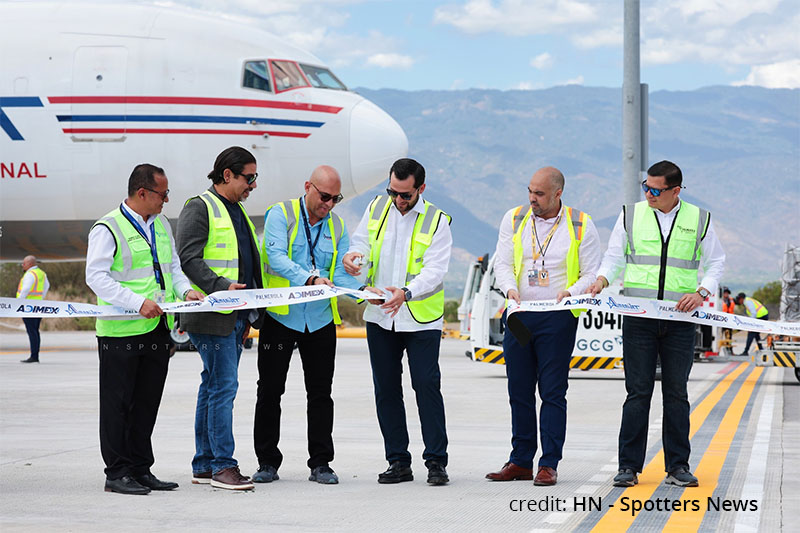Shipping Lithium Batteries on Cargo Flights
DATE: 04/17/19
Here are some basic guidelines to keep in mind when working with a cargo carrier on shipping your battery-related products:
Individuals and commercial firms that ship electronics and consumer products containing lithium batteries have a lot of rules to follow when it comes to air shipping. Earlier this year, the U.S. tightened the rules further on allowing lithium batteries on passenger aircraft. Generally, no lithium batteries are allowed in the cargo holds of passenger aircraft though portable devices carried onboard that contain lithium batteries, such as smartphones and laptops, are allowed.
Products containing lithium batteries are permitted on all-cargo or dedicated freighter aircraft when properly packaged, labeled and declared. Amerijet International Airlines, a Miami-based all-cargo carrier which serves 40 destinations in the Caribbean, Mexico, Central and South America with B767 freighter aircraft, does accept shipments containing both types of lithium batteries: lithium-ion and lithium-metal. Amerijet is one of the few all-cargo carriers qualified to transport all types and classes of hazardous material (including classes 1-9, and class A).
Here are some basic guidelines to keep in mind when working with a cargo carrier on shipping your battery-related products:
Lithium-ion (Li-on) batteries: Lithium-ion, and also lithium polymer batteries, are rechargeable batteries. The capacity of the Watt hours (Wh) and quantity of batteries will determine the type of packing to use when shipping. Lithium-ion batteries are generally used to power devices such as mobile phones, laptops, tablets, power tools, e-bikes and radio-controlled toys, among other products.
Lithium-metal batteries: Lithium-metal batteries and lithium alloy batteries as a general rule are non-rechargeable. These batteries are designed to be discarded once their initial charge is used. The capacity of the cell and the quantity of batteries will determine the type of packing to use for shipping. Lithium metal batteries are used to power devices such as watches, calculators, cameras, temperature data loggers, car key fobs and defibrillators.
For both lithium-ion and lithium-metal batteries, depending on the battery characteristics and type of product, shipments may be contained within the equipment or are required to be packed separately with the equipment. Velasquez gave the example of electric-powered drones which contain lithium-metal batteries. The batteries could be packed with the equipment but not connected to the equipment.
The type of lithium battery will determine how the shipment is prepared, packaged and labeled, and if it needs to be officially declared in documentation as dangerous goods or what’s known as “hazmat.” Accordingly, the two basic categories of shipments containing lithium batteries are:
Declared as dangerous goods
Lithium-ion batteries
Some lithium battery shipments must be declared as dangerous goods and requires shipping in a UN-certified reinforced box when tendered to an all-cargo carrier. Shipments with lithium-ion batteries cannot be shipped on aircraft at full charge; only at no more than 30 percent charge.
General cargo
Lithium-metal batteries
Other types of lithium battery shipments are shipped as “general cargo,” not subject to a Dangerous Goods Shippers declaration. These shipments do not require special UN-certified packaging but must state the wording “Lithium Battery in compliance under section II” under nature and goods section of the air way bill.
Consult with hazmat specialists
While Amerijet has dangerous goods shipping experts on staff, Velasquez advises shippers of lithium batteries to consult with a hazmat shipping specialist. These third-party firms provide assistance to direct shippers and freight forwarders for preparing the appropriate documentation for their lithium battery shipment and packaging services before the shipment is tendered to the air carrier.
In addition, resources for shippers and their shipping partners about shipping lithium batteries are available at the IATA dangerous goods section at this page.( https://www.iata.org/whatwedo/cargo/dgr/Pages/lithium-batteries.aspx )
With certified hazmat shipping agents on staff, the Amerijet team works with these specialists and authorities to ensure shipments containing lithium batteries arrive safe and secure. For more information about shipping dangerous goods with Amerijet, including shipments containing lithium batteries, please email sales@app-wpprod-prod-eastus2-001.azurewebsites.net or call 305-506-2969.





